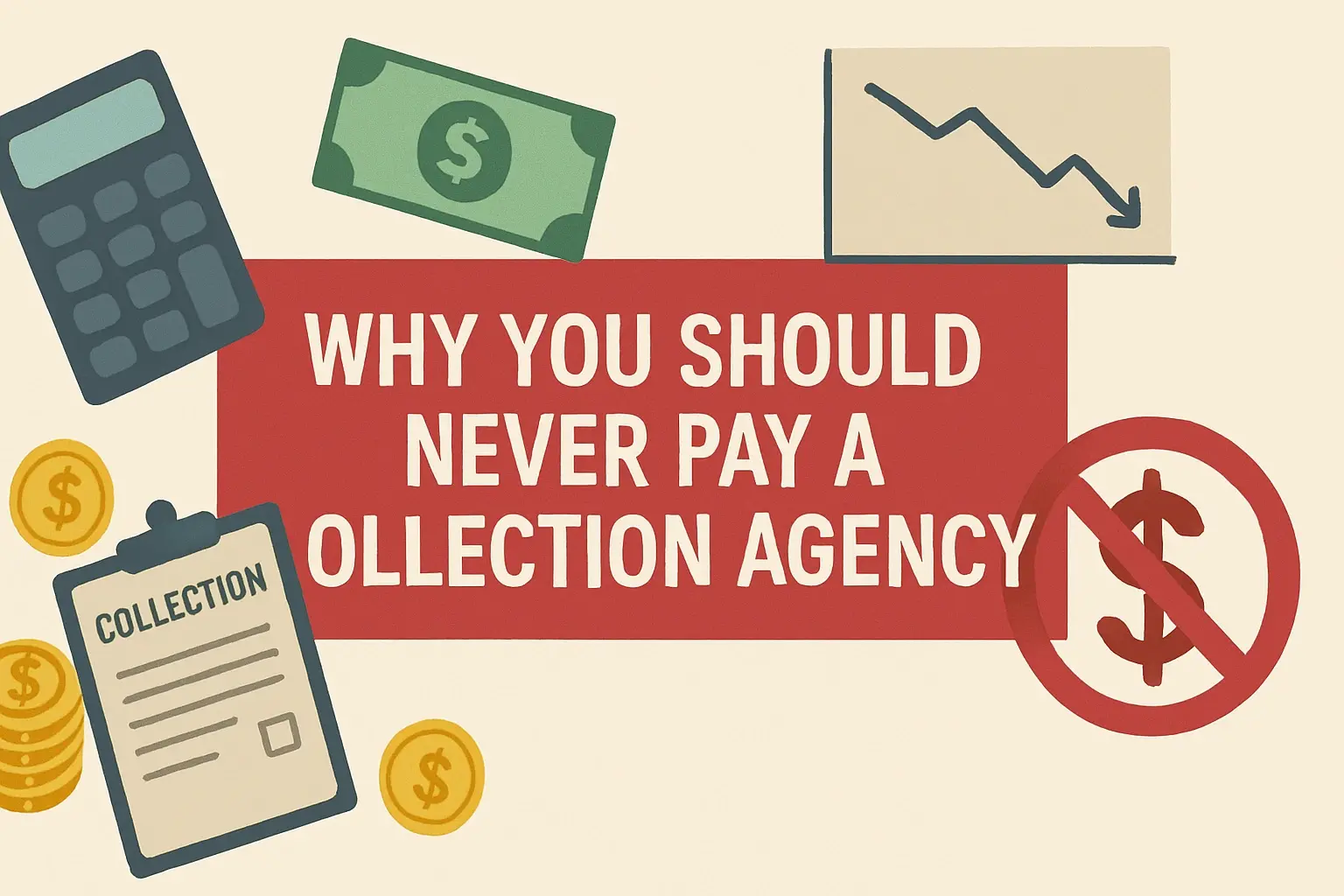The Truth About Credit Repair: Separating Fact from Fiction
Your credit score is more than just a number; it's a key that unlocks financial opportunities. A good credit score can help you secure loans at favorable interest rates, rent an apartment, and even get hired for certain jobs. Conversely, a poor credit score can limit your options and cost you thousands of dollars over your lifetime.
If you're struggling with a low credit score, you might be tempted to turn to a credit repair company for help. These companies promise to fix your credit by removing negative items from your credit report. But do they really work? The answer is complex, and it's crucial to understand the realities of credit repair before spending your money.
Understanding Credit Repair: What It Is and What It Isn't
Credit repair, at its core, involves challenging inaccurate, incomplete, or unverifiable information on your credit report. This process is grounded in the Fair Credit Reporting Act (FCRA), a federal law that gives consumers the right to dispute errors on their credit reports with the three major credit bureaus: Experian, Equifax, and TransUnion.
Legitimate credit repair companies operate within the bounds of the FCRA and focus on helping you exercise your rights. They can assist you with:
- Obtaining copies of your credit reports from each bureau.
- Identifying potentially inaccurate, incomplete, or unverifiable information.
- Drafting dispute letters to the credit bureaus.
- Tracking the progress of your disputes.
- Providing educational resources about credit management.
However, it's essential to understand what credit repair cannot do. No credit repair company can legally remove accurate, verifiable negative information from your credit report. This includes things like late payments, charge-offs, and bankruptcies. If a negative item is accurate and within the reporting timeframe (typically 7-10 years), it will remain on your credit report.
Red Flags: Identifying Credit Repair Scams
Unfortunately, the credit repair industry is rife with scams. Unscrupulous companies make unrealistic promises and charge exorbitant fees for services that are often ineffective or even illegal. Be wary of any company that:
- Guarantees specific results or promises to "erase" your bad credit history.
- Asks you to pay upfront fees before performing any services (this is illegal under the Credit Repair Organizations Act).
- Tells you to dispute accurate information on your credit report.
- Advises you to create a "new credit identity" by using a different name or Social Security number (this is a form of fraud).
- Doesn't explain your rights under the FCRA.
Always do your research and check the company's reputation with the Better Business Bureau and online reviews before signing up for any credit repair services.
The Pros and Cons of Using a Credit Repair Company
While DIY credit repair is always an option (and often the most cost-effective), there are potential benefits and drawbacks to hiring a credit repair company.
Pros:
- Convenience: Credit repair companies handle the tedious and time-consuming process of disputing errors on your credit report.
- Expertise: They have experience navigating the credit reporting system and may be more effective at identifying and disputing errors.
- Education: Some companies provide educational resources to help you improve your credit management skills.
Cons:
- Cost: Credit repair services can be expensive, with fees ranging from monthly subscriptions to per-item charges.
- Potential for Scams: As mentioned earlier, the industry is vulnerable to fraud.
- No Guarantees: Even legitimate companies cannot guarantee specific results.
- You Can Do It Yourself: Everything a credit repair company does, you can do yourself for free.
DIY Credit Repair: Empowering Yourself to Take Control
The truth is, you don't need to pay a credit repair company to fix your credit. You have the right to dispute errors on your credit report yourself, and the credit bureaus are legally obligated to investigate your claims. Here's how to do it:
- Obtain Your Credit Reports: You're entitled to a free copy of your credit report from each of the three major credit bureaus once a year at AnnualCreditReport.com. You can also access your credit reports for free through various credit monitoring services.
- Review Your Credit Reports Carefully: Look for any inaccurate, incomplete, or unverifiable information, such as incorrect account balances, late payments that are not yours, accounts you don't recognize, or outdated information.
- Draft Dispute Letters: For each error you find, write a separate dispute letter to the relevant credit bureau. Be clear and concise, explaining the error and providing any supporting documentation you have (e.g., payment records, court documents).
- Send Your Dispute Letters by Certified Mail: This provides proof that the credit bureau received your letter.
- Follow Up: The credit bureaus have 30 days to investigate your dispute. If they find an error, they must correct it. If they disagree, they must provide an explanation.
- Re-Dispute if Necessary: If the credit bureau doesn't correct the error, you can re-dispute it, providing additional information or documentation. You can also file a complaint with the Consumer Financial Protection Bureau (CFPB).
Tips for Writing Effective Dispute Letters:
- Be Clear and Concise: State the specific error you're disputing and why it's incorrect.
- Provide Supporting Documentation: Include copies of any documents that support your claim.
- Keep a Record of Everything: Keep copies of your dispute letters, supporting documentation, and any responses you receive from the credit bureaus.
- Be Persistent: Don't give up if your initial dispute is rejected. Continue to challenge the error until it's corrected.
Beyond Credit Repair: Building Good Credit Habits
While disputing errors can help improve your credit score, it's only one piece of the puzzle. To build and maintain a good credit score, you need to adopt responsible financial habits:
- Pay Your Bills on Time: Payment history is the most important factor in your credit score. Set up automatic payments or reminders to ensure you never miss a due date.
- Keep Your Credit Utilization Low: Credit utilization is the amount of credit you're using compared to your credit limit. Aim to keep your credit utilization below 30%, and ideally below 10%.
- Avoid Opening Too Many New Accounts: Opening multiple credit accounts in a short period can lower your credit score.
- Monitor Your Credit Regularly: Check your credit reports regularly to identify any errors or signs of identity theft.
- Consider a Secured Credit Card: If you have bad credit, a secured credit card can be a good way to rebuild your credit.
Alternatives to Credit Repair Companies
If you're struggling with debt management and its impact on your credit score, consider these alternatives to credit repair companies:
- Credit Counseling: Non-profit credit counseling agencies offer budget counseling, debt management plans, and educational resources.
- Debt Settlement: Debt settlement companies negotiate with your creditors to reduce the amount you owe. However, this can negatively impact your credit score.
- Debt Consolidation: Debt consolidation involves taking out a new loan to pay off your existing debts.
- Bankruptcy: Bankruptcy is a legal process that can discharge your debts. However, it has a significant negative impact on your credit score.
It's important to carefully consider the pros and cons of each option before making a decision.
Conclusion: Empowering Yourself with Knowledge
Credit repair companies can be helpful for some people, but they are not a magic bullet. The best way to improve your credit score is to understand how credit works, dispute errors on your credit report, and adopt responsible financial habits. By empowering yourself with knowledge and taking control of your finances, you can achieve your credit goals without relying on expensive and potentially ineffective credit repair services.












